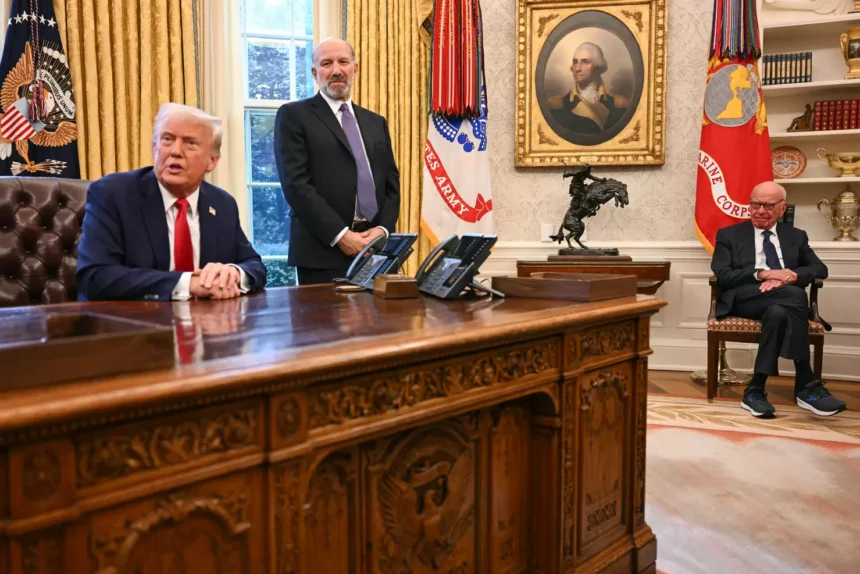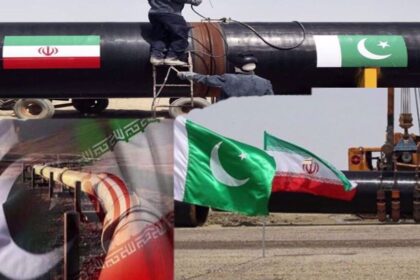Trump’s Quixotic Foreign Policy: Leaders and their personal views heavily influence contemporary geopolitics, more so than national foreign policies. Most significantly, the superpowers have always maintained a stake in global decisions and their states’ foreign relations. For the past four decades, the United States has been the sole superpower and has played a critical role in shaping the fate of Global South nations while hypocritically boasting about its democratic values.
Similar to the European world in the past, the USA has awarded itself the status of a morally upright and “civilised” nation, claiming the “White Man’s Burden” and assuming the duty to implement exploitative policies for less developed states, including the extraction of their natural resources. Other than that, the presidents of the United States have a legacy of deviating from democratic principles when it comes to making reckless statements, mostly overriding their constitutional limits.
The new era of President Trump and South Asia
President Donald J. Trump, the twice-elected president who is currently serving, is known for his populist domestic and foreign policies and statements. Since assuming office in January 2025, President Trump has been demonstrating a reckless approach to sensitive issues. Among his outrageous measures as the current US president, he has provided billions of dollars in military aid to Israel, introduced harsh anti-immigrant policies, offered a role in mediating armed conflicts between countries, and shifted the stance of the United States with respect to South Asia. The US has shared a strategic partnership with India to maintain a balance of power in the region against China, which both countries see as a foe. However, recently, the geopolitical dynamics are tilting in favour of Pakistan, after the armed conflict between India and Pakistan in May 2025, and America’s role in mediating a ceasefire between them.
Furthermore, the Chief of Army Staff, Field Marshal Asim Munir, visited the US recently to engage in talks for “bilateral” gain. It is not a secret that in Pakistan, the White House always possesses an agenda when inviting the Pakistani army chiefs for discussions on “regional security affairs”, and it always bears a cost. Even though it is indeed positive news that the United States has opened its warm arms towards Pakistan once again, as it would aid in maintaining regional stability, there still lingers a fear among the intellectual corridors that this latest move by the United States is also not as simple as it seems on the surface and it can most possibly have a price that the people of Pakistan will have to pay eventually.
Oil reserves found in Pakistan
In a row of tweets on X recently, President Trump has clearly displayed his anger towards India for engaging in continuous oil trade with Russia. Another shocking piece of news is that the US, under President Trump, imposed 25% tariffs on Indian goods as part of a new tariff policy, which appears to be a punishment for India’s relations with Russia. Simultaneously, he has written in favour of Pakistan and has made yet another disruptive announcement about the discovery of “massive” oil reserves in Pakistan. There is no other source for confirmation of these claims, as the government of Pakistan has still not issued any official statement backing these hasty claims. Trump also said that he is looking forward to working with Pakistan with respect to these oil reserves, indicating America’s blatant involvement in extracting the natural resources. However, it is still to be observed whether the US Congress backs Trump in this undertaking of his. Moreover, the fact that China still poses a threat to the US and India, the only state to work with to counter the former, cannot be overlooked by Pakistan. Other than that, it might have consequences for the China-Pakistan relations as well. Therefore, if there is any presence of these “massive” oil reserves, the government of Pakistan must take public interest into account, instead of letting the US exploit them.
To sum it all up, the United States under Trump’s presidency has stepped into a new era of foreign policy, especially in South Asia, and hence, the powers ruling Pakistan should not compromise the public interest and national integrity.















